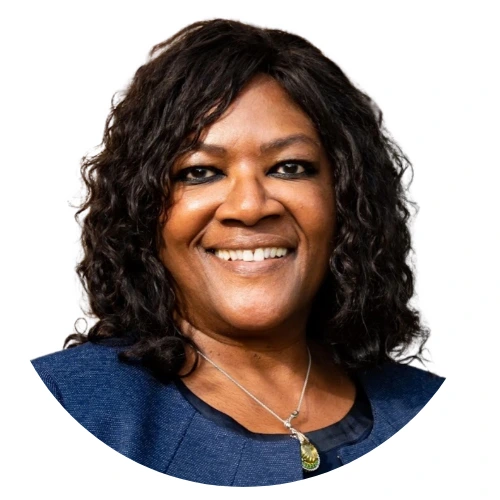
June Nwabra
Reading time: 3 min
Hi 👋, I’m June. How can I help you?
The world seemingly takes a collective breath when the calendar turns to October 10th. World Mental Health Day is not just another square on the grid; it’s a quiet invitation to sit across from our own shadows and ask, “How are you really?” This year, as flights lift land, the discussion is expanding to a phrase we seldom link to therapy, US medical tourism. Yes, the country that brought us skyscrapers and Super Bowls is proving a quiet refuge for minds that need more than just a weekend retreat. People are flying across oceans with the desperation they once reserved for cardiac surgery except this time the operation is invisible not in stitches but safer synapses and less.
At 2:14 a.m., search bars light up across the globe. One query, typed in a quiet kitchen half a world away, reads simply: most trusted health care in USA. The fingers behind the screen aren’t looking for luxury or a vacation they’re looking for a therapy model that isn’t available within a day’s train ride, a clinician who has seen this exact subtype of OCD more than a handful of times, a place where the first question isn’t “Have you tried yoga?”
This is the new geography of healing. Not medical tourism in the postcard sense no poolside recovery selfies but a deliberate, self-funded transfer of trust. People are boarding planes for the same reason they once switched pharmacies: because somewhere else, the protocol is sharper, the waitlist shorter, the stigma lighter. The destination might be a brownstone clinic in Boston, a trauma-focused intensive in suburban Chicago, or a bilingual mood-disorder program in Los Angeles. What unites them is the quiet calculus that an airfare plus four weeks of rent can cost less in dollars, in time, in psychic wear-and-tear than another year of trial-and-error at home.
The clinics that welcome these midnight searchers tend to share three quiet promises: accreditation you can verify on a phone, pricing you can read without a referral, and a discharge plan that doesn’t end at the airport gate. No names are posted on inspirational billboards; no outcomes are tweeted as victory laps. Just a calendar slot, a validated parking ticket, and the unspoken agreement that healing is allowed to travel. So if you happen to notice a small surge in ride-share drop-offs at a quiet medical campus, remember: not every visitor carries a suitcase of clothes. Some carry a single question “What if the next right thing is 8,000 miles away?” and the courage to find out.
For mental health, geography can be the enemy of specificity. A country town may have just one overburdened generalist; a city like San Francisco has a dialectical-behavioral-therapy team that convenes at 4 p.m. on Tuesday, come hell or high water. When the emergency is suicidal ideation, waiting six months for the next available slot feels like asking someone to ration air.
Literally. Bilingual clinicians in Miami or Los Angeles can untangle trauma in the tongue it originally happened, something no translation app can replicate. For many, that linguistic homecoming is the first dose of safety they’ve tasted in years.
There is a unique anonymity in being a visitor. No bumping into your high-school English teacher at the pharmacy while picking up antipsychotics. The airplane seat becomes a confessional, the customs line a boundary between an old identity and a possible self.
Trust is a delicate currency; once it's spent, it depreciates quickly. The clinics experiencing the steepest increase in foreign patients have three not-negotiables: Joint Commission accreditation, up-front pricing that indexes therapy sessions the way restaurants index appetizers, and after-care arrangements that don't disintegrate the minute you step back into baggage claim. One center in Minnesota even has an affiliation with local Airbnb hosts who have been trained in Mental Health First Aid, so the couch you sob on gets the job. These precautions are why the phrase "most trusted health care" is starting to trail American psychiatry the way "Hollywood" trails Los Angeles less boasting, more standard.
Let's not idealize the jetway. Medical Tourism Services in the USA is more expensive than a second hand car, and just the return flight is covered by insurance, not the way there. Visas are rejected, panic attacks still happen at 30,000 feet, and sometimes the clinician who seemed so perfect on Zoom turns out to be a subpar match in person. The moral: a passport is not a cure-all. It's just another tool in the toolbox, one that's most effective when paired with continuity of care telehealth check-ins, local therapist referrals, and a plan for prescription refills that doesn't involve another layover.
On World Mental Health Day, if you find yourself drinking coffee at Gate C24, take a second glance at the lady writing in a notebook next to the vending machine. She could be drafting her discharge plan, not her holiday schedule. The guy browsing Spotify might be putting on hold the meditation playlist his Arizona trauma specialist had prescribed. Recovery no longer awaits us to remain stationary; sometimes it greets us in transit, somewhere between the clouds and the TSA bin. And that, maybe, is the most human sentence we can craft today: the mind deserves the same freedom we give the body to cross borders, to pursue excellence, to return home.